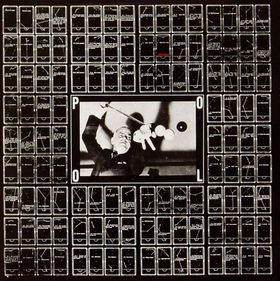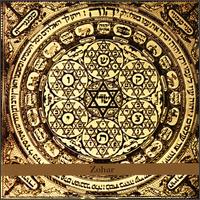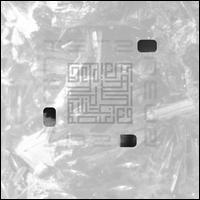
John Zorn is an American composer, conductor, saxophonist, arranger and producer who "deliberately resists category". His avant-garde and experimental approaches to composition and improvisation are inclusive of jazz, rock, hardcore, classical, contemporary, surf, metal, soundtrack, ambient, and world music. In 2013, Down Beat described Zorn as "one of our most important composers" and in 2020 Rolling Stone noted that "[alt]hough Zorn has operated almost entirely outside the mainstream, he's gradually asserted himself as one of the most influential musicians of our time".

Naked City was an avant-garde music group led by saxophonist and composer John Zorn. Active primarily in New York City from 1988 to 1993, Naked City was initiated by Zorn as a "composition workshop" to test the limits of composition in a traditional rock band lineup. Their music incorporated elements of jazz, surf, progressive rock, classical, heavy metal, grindcore, country, punk rock, and other genres.

Lacrosse is a double album by John Zorn. It is made up of different takes of his early game piece, "Lacrosse". The first disc is from WKCR in June 1978 where Mark Abbott, Polly Bradfield, Eugene Chadbourne, and LaDonna Smith and Zorn recorded six different takes. Takes 3, 4 and 6 were originally released on the Parachute Records double LP School (1978). The second disc is the original recording of "Lacrosse" which was made by Eugene Chadbourne, Henry Kaiser, Bruce Ackley, and Zorn in San Francisco, California in June 1977.

Filmworks VII: Cynical Hysterie Hour is a 1989 album by John Zorn featuring music written for a series of Japanese animated shorts that were created by Kiriko Kubo. It features Zorn's first music for cartoons and was originally released on the Japanese Sony label in limited numbers. In late 1996 Zorn finally attained the rights for his music and remastered and re-released the album on his own label, Tzadik, in 1997.

Filmworks 1986–1990 features the first released film scores of John Zorn. The album was originally released on the Japanese labels Wave and Eva in 1990, on the Nonesuch Records label in 1992, and subsequently re-released on Zorn's own label, Tzadik Records, in 1997 after being out of print for several years.
"For Zorn, filmscores have always been a place to experiment, and the FilmWorks Series is in many ways a microcosm of his prodigious output. This original installment of the FilmWorks Series presents three scores ranging from punk-rockabilly ; a jazzy Bernard Herrmann fantasy; to a quirky classical/improv/world music amalgam for Raul Ruiz's bizarre film The Golden Boat. Zorn's infamous one-minute arrangement of Morricone's classic The Good, The Bad and The Ugly, is included as a bonus track. This is the place where it all began."

Spillane is an album by American composer and saxophonist/multi-instrumentalist John Zorn, composed of three "file-card pieces", as well as a work for voice, string quartet and turntables.

The Circle Maker is a double album by John Zorn featuring Zorn's Masada compositions performed by the Masada String Trio and the Bar Kokhba Sextet which was released in 1998 on the Tzadik label.

Pool is an album by John Zorn featuring his early "game piece" composition of the same name which was first released on vinyl on Parachute Records in 1980 as a double album including the composition "Hockey". The album was released on CD on Tzadik Records with an additional bonus track featuring a test recording of Archery as part of The Parachute Years Box Set in 1997 and as a single CD in 2000. The album was the first released solely under Zorn's name following his collaboration with Eugene Chadbourne, School (1978).

Godard/Spillane is a compilation album by American composer and saxophonist/multi-instrumentalist John Zorn consisting of music created through Zorn's file-card compositional process. The composition "Godard", a tribute to French film-maker Jean-Luc Godard whose jump-cut technique inspired Zorn's compositional approach, on the French tribute album Jean-Luc Godard|Godard ça vous chante? in 1986 issued by the French Nato label. "Spillane" was first released on Zorn's Nonesuch Records album Spillane in 1987, and "Blues Noël" was first released on the compilation album Joyeux Noël - Merry Christmas Everybody! on Nato in 1987.

Filmworks II: Music for an Untitled Film by Walter Hill features the second release of scores for film by American composer John Zorn. The album was originally released on the Japanese Toys Factory label in 1995 and subsequently re-released on Zorn's own label, Tzadik Records, in 1996. It features the music that Zorn wrote and recorded for Trespass which director Walter Hill rejected in favour of a score by Ry Cooder.

Filmworks III: 1990–1995 features the scores for film and advertisements by John Zorn. The album was originally released on the Japanese labels Evva in 1995 and Toys Factory in 1996 and subsequently re-released on Zorn's own label, Tzadik Records, in 1997. It features the music that Zorn wrote and recorded for Thieves Quartet (1993), directed by Joe Chappelle, which was performed by the group that would become Masada; nine cues for Kiriko Kubo's Music For Tsunta (1988); eleven tracks for Hollywood Hotel (1994), directed by Mei-Juin Chen; and thirty-two pieces for advertisements by Wieden & Kennedy.

Filmworks IV: S/M + More features film scores by John Zorn. The album was released in Japan on Eva Records in 1996 and on Zorn's own label, Tzadik Records, in 1997. It features the music that Zorn wrote and recorded for Maria Beatty's The Elegant Spanking, Beatty and M.M. Serra's A Lot of Fun for the Evil One, "Credits Included" written for the film of the same name directed by Jalal Toufic and "Maogai," written for a piano scene in a film by Hiroki Ryuichi.

Filmworks V: Tears of Ecstasy is a film score by John Zorn. The album was released on Zorn's own label, Tzadik Records, in 1996. It features the music that Zorn wrote and recorded for the movie Tears of Ecstasy (1995) by director Oki Hiroyuki.

Filmworks VI: 1996 features three scores for film by John Zorn. The album was released on Zorn's own label, Tzadik Records, in 1996. It features the music that Zorn wrote and recorded for Anton, Mailman (1996), a short film directed by Dina Waxman that was never completed due to loss of funding in its final stages, Mechanics of the Brain (1996) directed by Henry Hills and The Black Glove (1996), which was directed by, and starred, Maria Beatty.

Filmworks VIII: 1997 features two scores for film by John Zorn released on Zorn's own label, Tzadik Records, in 1998. It features the music that Zorn wrote and recorded for The Port of Last Resort (1998), a documentary directed by Joan Grossman and Paul Rosdy examining the experiences of Jewish refugees in Shanghai and Latin Boys Go to Hell (1997) which was directed by Ela Troyano.

Aporias: Requia for Piano and Orchestra is an album of contemporary classical music by American composer and saxophonist/multi-instrumentalist John Zorn performed by Stephen Drury, the Hungarian Radio Children's Choir and the American Composers Orchestra.

Zohar is an album by the Mystic Fugu Orchestra (John Zorn and Yamataka Eye who perform a range of music inspired by historical recordings of ancient Judaica. To simulate the "antiquity" of these recordings, a heavy layer of surface noise was overlaid on the music to represent the playing quality of a 78 rpm gramophone record.

The Parachute Years: 1977–1981 is a compilation album 7-CD box set by John Zorn. It features recordings of Zorn's game pieces originally released as self-produced albums on the Parachute label as well as previously unreleased performances. All of the discs in this box set have been subsequently given their own releases on Zorn's Tzadik label.

Deadly Weapons is an album by Steve Beresford, John Zorn, Tonie Marshall and David Toop. The album was originally released on the Nato label in 1986. It is designed as film noir soundtrack music to a film which does not exist and could be considered a forerunner to Zorn's Spillane (1987).

Interzone is the thirteenth studio album by American composer John Zorn developed to pay tribute to the influence of writers William S. Burroughs and Brion Gysin and released on Zorn's Tzadik label in 2010.




















